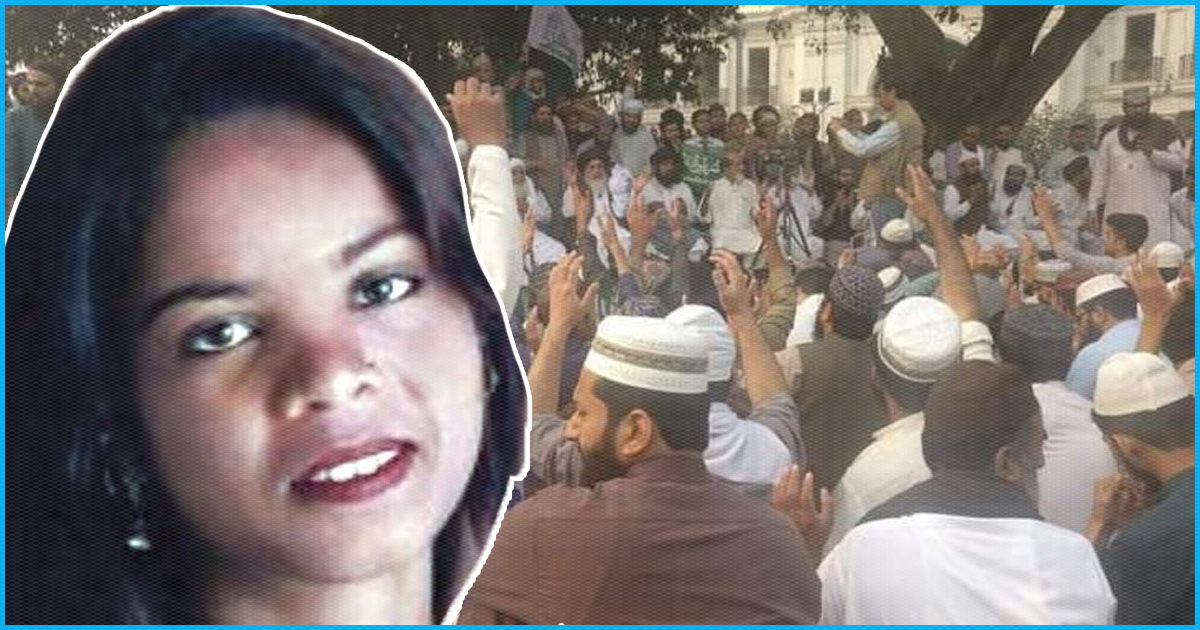In the light of the acquittal of Asia Bibi, a Pakistani Christian woman convicted under the infamous blasphemy law of the country, one might wonder the weight of such religious protocols within the legal framework of any nation. The alarming answer is quite evident from the widespread nationwide protests that have already surfaced in Pakistan within minutes of the historic judgement by Pak Supreme Court which ordered her release and revoked her death sentence.
Pakistan’s Supreme Court has acquitted a Christian woman who has been on death row for almost eight years on blasphemy charges https://t.co/GHcMUnusC2
— CNN Breaking News (@cnnbrk) October 31, 2018
As reported by Dawn, infuriated members of Tehreek-i-Labbaik, an Islamic organisation demanding Asia Bibi’s execution for the past eight years have flocked and blocked the streets of Rawalpindi where Asia is imprisoned.
In this context, the persistent controversy that has rocked the globe ever since Asia Bibi’s conviction can be chronicled.
Asia Bibi was sentenced to death in 2010
According to The Guardian, Asia Bibi, a Christian farm labourer with five children, got embroiled in a heated argument with her fellow Muslim workers in 2010 when she took a sip of the drinking water stored for them. In retaliation to their refusal to touch the water and amidst their demand for her to convert to Islam, Asia reportedly defended her own religion. This was later construed by the enraged mob as an insult to Prophet Mohammed, which falls under the purview of the blasphemy laws in the country. Incidentally, the blasphemy laws in the Pakistan penal code award death or life imprisonment to any individual or group who demeans Islam in any way. The laws were imposed by former dictator Zia-ul-Haq.
Being a small-scale labourer from a minority community, it did not take long for Asia to be arrested and sentenced to death. She has remained in solitary confinement in Adiala Jail in Rawalpindi since then.
The movement to hang Asia Bibi
Just a year later, Salman Taseer, the then governor of Punjab province was assassinated after he expressed his support towards Asia, highlighting the irrelevance of the existent blasphemy law. His killer Mumtaz Qadri, who was, in fact, the personal bodyguard of Taseer, was executed a few years later, only to be hailed as a hero by Islamic hardliners, including the group Tehreek-i-Labbaik. His grave has been enshrined and his name chanted among the martyrs who died protecting the Islamic sanctity of Pakistan. In 2018, Ahsan Iqbal, Pakistan’s interior minister, was another public figure to be shot and injured for speaking out against the blasphemy laws.
Meanwhile, Asia’s death sentence garnered worldwide outcry from the Christian community and human rights organisations. Erstwhile Pope Benedict had appealed for the release of Asia Bibi. During a meeting with Bibi’s family in February this year, present Pope Francis referred to her as a ‘martyr’.
Thus, Asia Bibi is not just another blasphemy convict in a deeply religious state, she has given a face to the evergoing tussle between religious fanaticism and freedom of thought. For the extremists, Asia has been an instance to portray how ‘sinners’ who stand against Islam are ought to be ‘punished’ by nothing short of death. On the other hand, the liberalists have upheld her as the face of the dwindling minority communities in Pakistan.
The verdict presents many challenges
The present verdict delivered by Pak Chief Justice Saqib Nisar, read, “Her conviction is set aside and she is to be relieved forthwith if not required in other charges,” stated a report by The Week.
It must be remembered here that in the past few years, the blasphemy laws in Pakistan have come under scrutiny time and again. In April 2017, 23-year-old liberalist Mashal Khan was lynched and brutalised to death by a large mob inside his university campus on unproven blasphemy charges. The local court verdict which awarded death sentence to only one of the accused and acquitted over 26 others, met with a lot of criticism.
With a riot-like situation slowly building in Pakistan after the Asia verdict, it might prove to be challenging for the Imran Khan government who had validated the blasphemy laws during his election campaign.
Writing for CNN, notable Pakistani journalist Rafia Zakaria has said, “…Khan could choose to stand with the innocent woman instead of the rabid and bloodthirsty extremists.”
Blasphemy laws across the world
Blasphemy laws have prevailed in the legal constitution of different nations around the world. Islamist countries like the Middle-East nations continue to operate predominantly on Sharia or Islamist law. In 2017, Denmark abolished their 334-year-old blasphemy law. Ireland followed suit just recently on 27th October 2018 by withdrawing their medieval blasphemy ban.
In India, Section 295A of the Indian Penal Code describes a ‘blasphemy law’ outlined by the British, which prohibits insult to Christianity, Islam and Hinduism. Recently, the Punjab State Government has proposed an amended Article 295AA to extend the horizon of the law to Sikhism as well.
Also Read: The Dictator Who Ruled Pakistan For 11 Years And Imposed Sharia And Blasphemy Laws











